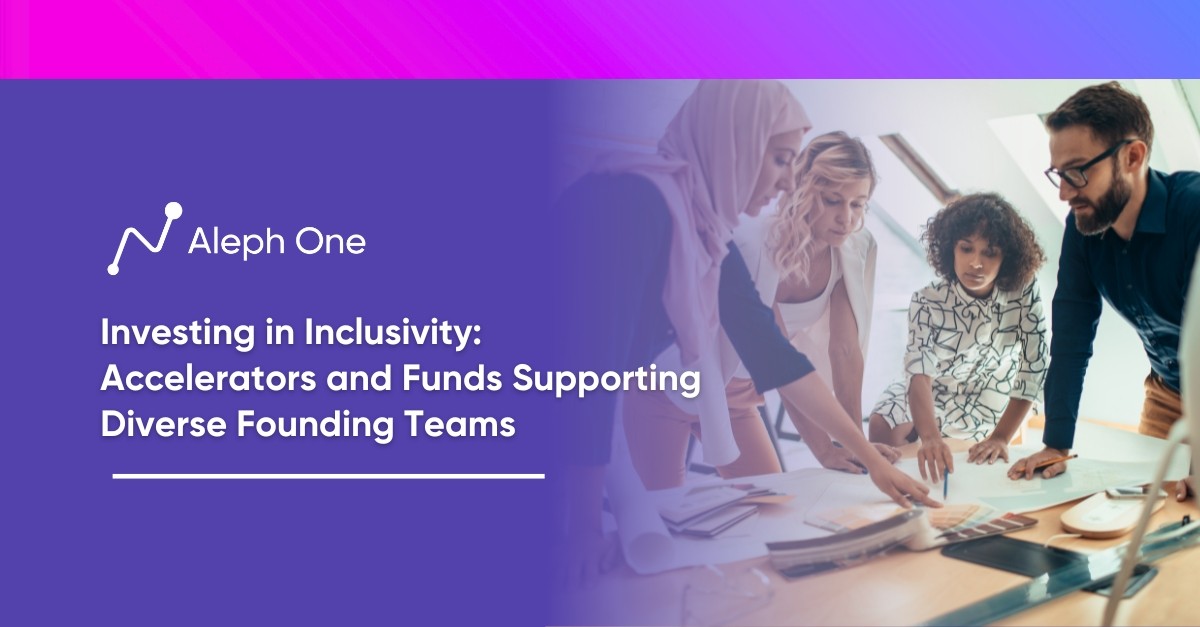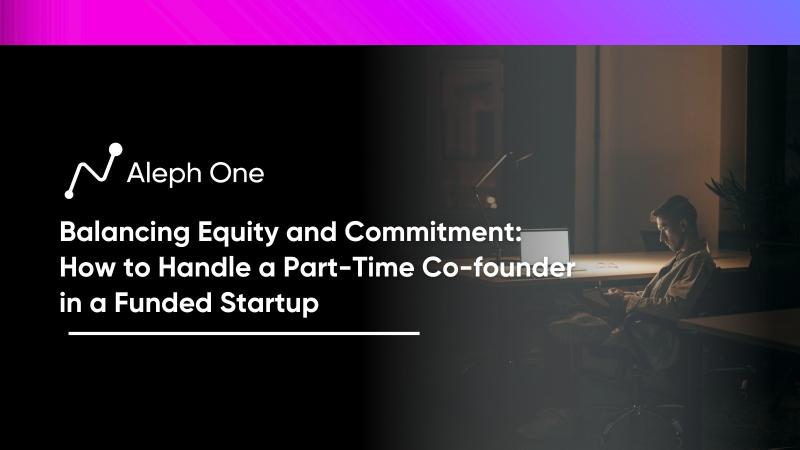Let’s work together to build something amazing. Share your project details and our team will reply to figure out the next steps to your success.

In the fast-paced world of entrepreneurship, innovation knows no boundaries. Yet, beneath the shiny facade of the startup ecosystem lies a glaring truth: diverse founders are systematically shut out from accessing the funds they need to turn their visionary ideas into reality. The numbers speak volumes, revealing a stark funding gap that hampers underrepresented entrepreneurs’ progress. Black, Latinx, and female founders receive only a fraction of the venture capital that flows to their White male counterparts. Bias-laden pitch meetings and inappropriate questioning further compound the challenges diverse founders face. However, a new wave of venture capital firms and accelerator programs is emerging, championing underrepresented founders and proving that inclusivity breeds success. Join us as we delve into the world of these trailblazers, uncovering inspiring stories of grit and growth, exploring the social and economic impact of diversity in entrepreneurship, and envisioning the path ahead toward a truly equitable funding ecosystem.

The Funding Gap: A Sobering Reality for Diverse Founders
New research reveals a sobering reality: diverse founders face enormous systemic barriers in accessing venture capital funding. According to Crunchbase, Black founders received just 1.2% of the total venture funding in the U.S. in 2020, while Latinx founders received 2% and female founders received 2.3%. The funding gap is even starker when looking at median deal sizes: deals with Black and Latinx founders tend to be much smaller, often under $1 million, compared to $5 million for White founders.
Unconscious Bias
Interviews with diverse founders highlight the obstacles they frequently encounter. Many report being passed over for funding due to unconscious bias among investors towards certain kinds of founders. “We were told that because we were women and Latina, focusing on a ‘niche’ health issue, investors didn’t believe we could scale,” says Claudia Recinos, CEO of health startup Iquity. Others note being asked inappropriate questions about their ethnicity, gender, or sexuality during pitch meetings.
The Importance of Diverse Founders to Innovation and the Economy
The systemic underfunding of diverse founders is a loss for innovation and economic growth. When entire groups are locked out of the startup ecosystem, many promising ideas never come to fruition. A study by the Kauffman Foundation found that if underrepresented groups started and owned businesses at the same rate as White men, it could add over 9 million jobs to the U.S. economy.
Diversity Mandates
In response, policymakers are calling for diversity mandates to help close the funding gap. In 2021, California passed a law requiring public companies headquartered in the state to have at least one director from an underrepresented community by 2022. However, mandates are controversial, and some argue they pose legal issues. Grassroots campaigns like #TheGapTable are working to hold VCs publicly accountable for the lack of diversity.
The harsh reality is that the funding ecosystem has a long way to go to achieve equal access and opportunity for all founders. While data and anecdotes show the immense challenges diverse founders face, they also highlight the vast, untapped potential in overlooked communities. The path forward will require transparency, accountability, and a radical mindset shift to reimagine what a successful founder looks like. The funding gap can be closed with collective action, and a new era of inclusive entrepreneurship can be ushered in.
The New Vanguards: How VCs Are Championing Underrepresented Founders
A new generation of venture capital firms is leading the charge to fund underrepresented founders. These VCs recognize that overlooking diverse founders means missing out on innovative ideas and strong returns.
Backstage Capital
Backstage Capital, an early-stage VC firm, has invested in over 150 companies led by underrepresented founders since its launch in 2015. Founding partner Arlan Hamilton has become an outspoken advocate for diversity in venture capital. Backstage’s portfolio, which is over 60% female and minority-led, demonstrates that investing in underrepresented founders can yield market-beating returns.
Precursor Ventures
Precursor Ventures takes a data-driven approach to identifying and investing in underrepresented founders. Partner Charles Hudson leverages software to source and evaluate deals from non-traditional networks. Precursor’s $31 million fund is focused on supporting Black, Latinx, and female founders at the earliest stages of company building.
Cross Culture Ventures
Cross Culture Ventures invests in minority-led technology, consumer, and healthcare startups. Led by a predominantly Black investing team, CCV believes that diverse founders often have the lived experiences to recognize and solve problems in their own communities. Their portfolio of over 60 companies proves startups with diverse leadership can achieve strong financial performance.
VCs Role in Addressing Funding Inequities
These VCs are diversifying their investment portfolios, partner base, and mentor networks. They recognize that supporting underrepresented founders requires providing them with guidance and connections that traditional VC networks may need to improve. By championing diverse founders, these VCs play a vital role in addressing funding inequities while staking their position in a competitive VC market.
However, these VCs still represent a small fraction of the venture capital industry. For systemic change to happen, more established VC firms must follow their lead. Some critics argue that diversity mandates may be required to accelerate change. Regardless of the approach, access to funding is crucial for empowering underrepresented founders to reach their full potential.
Accelerating Change: The Programmes Propelling Diverse Founders to Success
Accelerator programs have emerged as a critical tool for propelling underrepresented founders to success. Organizations like DivInc, Change Catalyst, and The Workshop provide targeted support for women, BIPOC, and LGBTQ+ founders to help them overcome systemic barriers to funding and scaling their companies.
DivInc – Accelerator for Women and Founders of Color
DivInc is an Austin-based accelerator focused on women and founders of color. Their 12-week program provides $20,000 in seed funding, mentorship, and resources for participants to accelerate their startup growth. DivInc’s success is evidenced by their alums raising over $10 million in follow-on funding. Change Catalyst’s Tech Inclusion Accelerator targets women and underrepresented founders in New York City. During their 6-month program, founders are paired with mentors, provided co-working space, and introduced to investors. Their alumni have achieved a 60% funding success rate within 6-12 months of completing the program.
The Workshop – LGBTQ+ Tech Founders
The Workshop is a San Francisco-based accelerator for LGBTQ+ tech founders. Their 3-month program offers $25,000 in funding, office space, and access to mentors and investors in the Bay Area. The Workshop aims to address the additional barriers that LGBTQ+ founders face in accessing capital and networks to build their companies. Although relatively new, accelerators targeting underrepresented groups have demonstrated promising results in empowering diverse founders.
While accelerators cannot single-handedly solve the systemic funding gap, they play an important role in cultivating overlooked talent and priming diverse founders for success. Accelerators help diverse founders overcome obstacles to raising capital and scaling their startups by providing critical resources and support systems. Their success stories and alums’ achievements prove that underrepresented founders can build fast-growing, impactful companies with the right opportunities and networks. Although still a nascent field, targeted accelerators for women, BIPOC, and LGBTQ+ founders represent a step towards a more just and equitable entrepreneurial ecosystem. With more programs launching and a growing track record of success, accelerators may accelerate the pace of change in diversifying the startup world.
The Social Impact: Why Diversity Matters in Entrepreneurship
Supporting diverse founders has a significant social and economic impact. Studies show that diverse, inclusive teams drive greater innovation. Companies with diverse perspectives can better identify opportunities, anticipate problems, and develop innovative solutions.
Building Products for Underserved Groups
Diverse founders are also more likely to build products and services addressing the needs of underserved groups. For example, founders from disadvantaged backgrounds are well-positioned to solve problems within their own communities. Women founders specifically tend to create companies that serve other women. By funding these founders, investors gain exposure to new markets and customers that may be overlooked.
Job Creation in Marginalized Communities
In addition, investing in underrepresented founders creates jobs in marginalized communities and builds generational wealth. Minority-owned businesses in the U.S. generated over $1.9 trillion in economic output and employed more than 7.1 million people in 2019. However, minority founders face disproportionate barriers to accessing capital, putting these economic benefits at risk.
Closing Racial Wealth Gaps
VCs that provide funding and support specifically for diverse founders are helping to strengthen the overall economy. For example, their investments in Black and Latinx founders help close racial wealth gaps and uplift disadvantaged groups. This leads to a more robust and prosperous society with greater socioeconomic mobility.
Systemic Barriers
Some argue that funding should be based solely on merit and the potential for returns. However, this view ignores the systemic barriers that diverse founders face, preventing many from even getting in the door to pitch to investors. It also ignores that overlooking entire population segments cuts off access to talent, skills, and insights that could benefit society and the economy.
Promoting diversity and inclusion in entrepreneurship is the strategic choice for maximizing innovation, growth, and prosperity. However, achieving equal access to funding will require investors to recognize their biases, prioritize diversity, and take proactive steps to support underrepresented founders. Although the road ahead is long, the rewards of building a truly equitable funding ecosystem make the effort worthwhile. The future of entrepreneurship depends on it.
The Road Ahead: Next Steps Towards an Equitable Funding Ecosystem
The funding gap for underrepresented founders remains wide, showing that diversity and inclusion efforts still have a long way to go. Policy mandates, targeted programs, and vocal advocates are driving change, but true progress requires a radical shift in mindset.
Mandates and Accountability
Policymakers are implementing diversity mandates for public funds and calling on private VCs to diversify their portfolios. However, mandates alone do not dismantle systemic barriers or change perceptions. They need to be accompanied by accountability to ensure compliance and impact. VCs must go beyond checking boxes to actively invest in understanding diverse founders and communities.
Accelerators for Underrepresented Founders
Accelerators and funds focused on underrepresented founders provide much-needed support systems but need help to carry the burden. They are vastly outnumbered and under-resourced compared to mainstream VCs. The entire investment community must fund and mentor diverse founders, not just specialized groups. This requires recognizing that investing in diversity generates both social and economic returns.
Mentorship and Sponsors
Diverse founders need more mentors and sponsors who believe in them and open doors to funding and partnerships. However, the onus should not be on underrepresented groups alone to volunteer their time and expertise to support each other. Those in positions of power and privilege must also mentor diverse founders and recommend them to their networks.
Shift in Unconcious Bias
Most importantly, achieving an equitable funding ecosystem requires a radical shift in perceptions of underrepresented founders. Unconscious bias continues to shape assumptions that diverse founders are riskier investments or less capable. These beliefs persist despite evidence that diverse teams drive innovation and returns. Dismantling them demands that investors confront their own biases, listen to understand diverse experiences, and make data-driven decisions.
Equity and Inclusion for Startup Founders
Progress towards equity and inclusion is often slow but always worth striving for. Underrepresented founders have shown immense resilience and promise despite systemic barriers. They can reach even greater heights with access to equal resources and opportunities. An equitable funding ecosystem where diverse talent is recognized and valued can lead to a more just, innovative, and prosperous society for all. The road ahead is long, but the rewards make it worth walking. Together, we must take the next steps.
Get the latest news and updates from Aleph One in your inbox.



